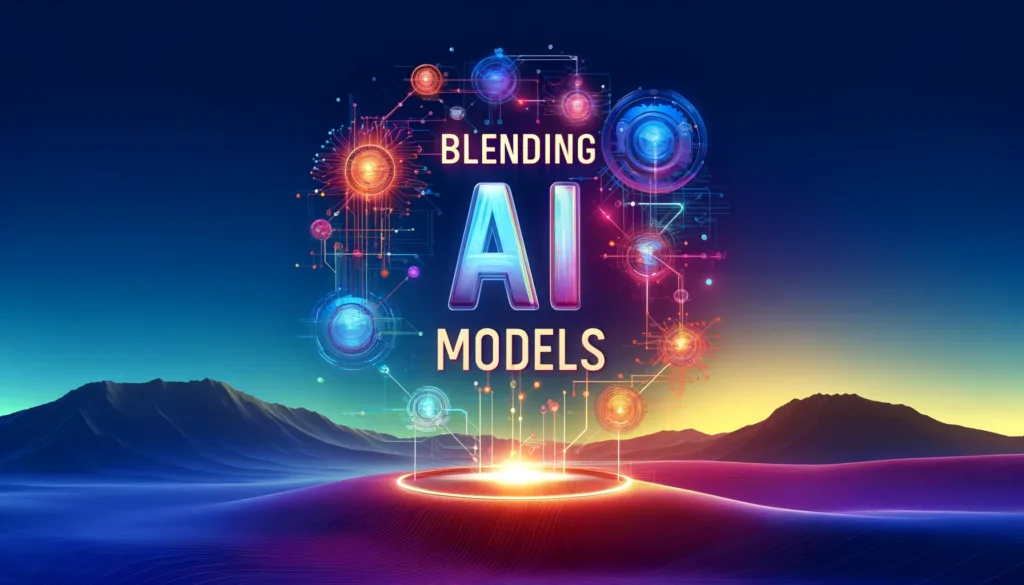Blending together or Combining multiple AI models, often referred to as model blending or ensemble learning, is a sophisticated technique that enhances the predictive power and stability of your AI solutions. You, as a user, can harness these techniques to build more robust AI systems that integrate the strengths of various models.
The 8 Methods on How to Blend Together Multiple Predictive AI
- Voting: Combine predictions from multiple models and use a simple majority or weighted average to make the final prediction. This can be implemented using techniques like “hard voting” (simple majority) or “soft voting” (weighted average).
- Stacking: Train a meta-model on the predictions of multiple base models. This meta-model learns how to best combine the predictions of the base models to make the final prediction.
- Bagging (Bootstrap Aggregating): Train multiple instances of the same model on different subsets of the training data and combine their predictions. This helps to reduce variance and improve generalization.
- Boosting: Train multiple weak learners sequentially, with each new model focusing on the errors made by the previous ones. This allows for the creation of a strong learner that performs better than any individual model.
- Weighted Average: Assign different weights to the predictions of each model based on their performance on a validation set or cross-validation. Models with better performance can be given higher weights in the final prediction.
- Feature Engineering: Combine features generated by different models before training a final predictive model. This approach can help capture complementary information from different models.
- Model Stacking with Meta-Features: In addition to using base model predictions as inputs to a meta-model, include additional features (meta-features) derived from the training data. These meta-features can provide additional information to the meta-model for better blending.
- Bayesian Model Averaging: Use Bayesian methods to calculate the posterior probability of each model given the observed data, and combine predictions based on these probabilities.
Ensemble Techniques Overview
One popular method for combining models is through ensemble techniques like bagging, boosting, and stacking. Bagging involves training multiple versions of a model on different subsets of the data and then averaging their predictions to improve accuracy and reduce overfitting. Boosting, on the other hand, sequentially adjusts the models focusing on the errors of previous ones to enhance performance. Stacking combines various models by training a new model to synthesize their predictions, often leading to superior accuracy.

Advanced Model Merging
For more intricate tasks, merging techniques such as the passthrough or frankenmerging methods involve combining layers from different models to create a new, more capable model. This can be achieved by tools like mergekit on platforms like Hugging Face, where you can experiment with configurations to optimize the combined model’s performance.
Practical Application with AI Tools
If you’re working with image data or feature extraction, tools like ONNX and Milvus can be instrumental. They enable the conversion of models into a unified format and perform operations like feature extraction, which are crucial for tasks such as image search. By integrating these models into a vector database like Milvus, you can efficiently perform similarity searches and retrieve results in near-real-time.
Starting with AI Model Combination
To start combining AI models, identify the models that complement each other’s strengths. You might use IBM’s Watsonx.ai or similar platforms that offer tools to manage and tune foundation models, making it easier to adapt and combine AI models for specific tasks like natural language processing or image recognition

By understanding and applying these techniques, you can significantly enhance the functional capabilities of your AI systems, making them more adaptable and effective for a variety of tasks.

